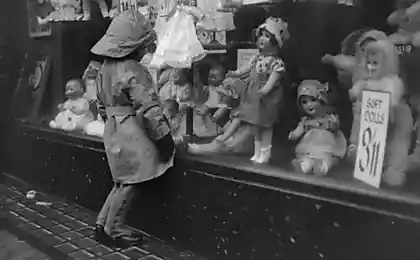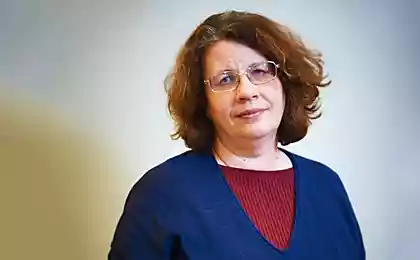663
Children's questions, keeping an impasse: how to respond
All parents know that children are by nature very inquisitive nature, always asking questions: why this, why that, why the fifth, tenth and why? But the answer to all of these children's "why" is not so simple, and parents and then they are baffled, especially when it concerns young parents have no experience in parenting and communicating with children. What can I say – even experienced parents sometimes do not know what to say on a particular issue their child.
So how is it to answer the questions of kids that are baffled, not to deceive, not to laugh it off and not easy to shrug off pesky novice to explore the world of the child, and even have on his cognitive interest stimulating effects?
In our today's article we will talk about it.

How to answer children's questions, keeping to a standstill?
Before you answer this serious question, we need to say that the first and most important rule is that the children in any case can not be ignored. And this applies even to those situations when you have no time, you busy with something or the question itself seems a mere trifle.
Agree that there are times when what the child asks us, think we are stupid? But it is not that questions are stupid and that we don't know how to answer them. Moreover, while we – adults – all seems simple, trivial and obvious, the child is just starting to get acquainted with the world around him and to know him phenomenon.
This is the reason that many of the terms, processes, and facts are something new, strange, inexplicable, but that we are those people who are for a child the main authoritative source of, and answer to his questions is our direct responsibility.
Now let's move from discussion to action – below we will consider several variants of answers on the winding to a standstill children's questions. As example, take one of the most common questions: "Why do stars Shine?".
The answer is "nothing"
On the question of why the light from the stars, you can answer anything not a carrier phrase, for example:
A provocative answer
Another answer to the question about the stars (and any other in General) the answer will be-a provocation, for example:
An answer that explains the structure of the world
When a child asks you about the stars, we can respond to him, referring to the fact that this is the structure of the world, for example:
The answer of a scientific nature
Here you can tell the child that:
The advantage of a scientific answer can be called that child for some time to ask questions. Scientific facts can be palatable to a toddler having a logical mind, he wants to get specific, accurate data.
The answer is fabulous
Another way to answer the question on the topic of stars and, again, any other topic may be the answer in fabulous form, for example:
Answer multiple choice
Answer multiple choice is one of the best ways to respond to creat an impasse issues. In our case, the answer could be like:
The response of the subject
Perhaps the best answer which can be. With regards to the stars, it might look like this:
When your younger and aspiring to explore the world child asks you a question that puts you in a standstill, not seek rather to get out. You need to give attention to any, even seemingly the most absurd, difficult and controversial issues, because the only way you can grow your baby man thinking and looking at the world with healthy eyes.
Oscar Brenifier: the 10 commandments for parents
The eldest daughter, or "older sister syndrome"
And most importantly – every parent should have the understanding that if he will not give the child the answers to what interests him, the child may get an answer (it is possible that very wrong) from someone else, and the effects on the children of strangers, especially strangers without their knowledge to prevent absolutely should not be.
So try yourself to give your child the knowledge that he wants to, but if you do not know the answer, sit down together with your child and do your own research.
Educational success for you and your children! published
Author: Kirill Nogales
Source: 4brain.ru/blog/%D0%BA%D0%B0%D0%BA-%D0%BE%D1%82%D0%B2%D0%B5%D1%87%D0%B0%D1%82%D1%8C-%D0%BD%D0%B0-%D0%B4%D0%B5%D1%82%D1%81%D0%BA%D0%B8%D0%B5-%D0%B2%D0%BE%D0%BF%D1%80%D0%BE%D1%81%D1%8B/
So how is it to answer the questions of kids that are baffled, not to deceive, not to laugh it off and not easy to shrug off pesky novice to explore the world of the child, and even have on his cognitive interest stimulating effects?
In our today's article we will talk about it.

How to answer children's questions, keeping to a standstill?
Before you answer this serious question, we need to say that the first and most important rule is that the children in any case can not be ignored. And this applies even to those situations when you have no time, you busy with something or the question itself seems a mere trifle.
Agree that there are times when what the child asks us, think we are stupid? But it is not that questions are stupid and that we don't know how to answer them. Moreover, while we – adults – all seems simple, trivial and obvious, the child is just starting to get acquainted with the world around him and to know him phenomenon.
This is the reason that many of the terms, processes, and facts are something new, strange, inexplicable, but that we are those people who are for a child the main authoritative source of, and answer to his questions is our direct responsibility.
Now let's move from discussion to action – below we will consider several variants of answers on the winding to a standstill children's questions. As example, take one of the most common questions: "Why do stars Shine?".
The answer is "nothing"
On the question of why the light from the stars, you can answer anything not a carrier phrase, for example:
- Because glow and all
- Grow up – then he'll understand
- Ask mom (or dad/grandma/grandpa) – she knows
A provocative answer
Another answer to the question about the stars (and any other in General) the answer will be-a provocation, for example:
- What makes you think that they should be off?
- Do you think the Earth is too light?
An answer that explains the structure of the world
When a child asks you about the stars, we can respond to him, referring to the fact that this is the structure of the world, for example:
- It is God's will
- This is the structure of the universe
- It affects the laws of physics
The answer of a scientific nature
Here you can tell the child that:
- Stars are huge balls, which consist of hot gaseous substances. Any of the stars has its own chemical composition of these substances, due to which their light can be not only white, but pale red or even bright blue, depending on the temperature of gaseous substances themselves. However, we can only see the white star, because they are the most hot, and only their light comes to people, overcoming millions of light years
The advantage of a scientific answer can be called that child for some time to ask questions. Scientific facts can be palatable to a toddler having a logical mind, he wants to get specific, accurate data.
The answer is fabulous
Another way to answer the question on the topic of stars and, again, any other topic may be the answer in fabulous form, for example:
- Because the stars are sewn to the black fabric of the sky by an invisible thread and painted with luminous paint
Answer multiple choice
Answer multiple choice is one of the best ways to respond to creat an impasse issues. In our case, the answer could be like:
- Someone says that the light of planets that exploded
- Others say that...
- On the Internet you can learn about what...
- And as far as I know ....
The response of the subject
Perhaps the best answer which can be. With regards to the stars, it might look like this:
- Our universe is full of amazing phenomena and mysteries. Stars Shine because in space there are certain processes, the results of which we can observe
When your younger and aspiring to explore the world child asks you a question that puts you in a standstill, not seek rather to get out. You need to give attention to any, even seemingly the most absurd, difficult and controversial issues, because the only way you can grow your baby man thinking and looking at the world with healthy eyes.
Oscar Brenifier: the 10 commandments for parents
The eldest daughter, or "older sister syndrome"
And most importantly – every parent should have the understanding that if he will not give the child the answers to what interests him, the child may get an answer (it is possible that very wrong) from someone else, and the effects on the children of strangers, especially strangers without their knowledge to prevent absolutely should not be.
So try yourself to give your child the knowledge that he wants to, but if you do not know the answer, sit down together with your child and do your own research.
Educational success for you and your children! published
Author: Kirill Nogales
Source: 4brain.ru/blog/%D0%BA%D0%B0%D0%BA-%D0%BE%D1%82%D0%B2%D0%B5%D1%87%D0%B0%D1%82%D1%8C-%D0%BD%D0%B0-%D0%B4%D0%B5%D1%82%D1%81%D0%BA%D0%B8%D0%B5-%D0%B2%D0%BE%D0%BF%D1%80%D0%BE%D1%81%D1%8B/























